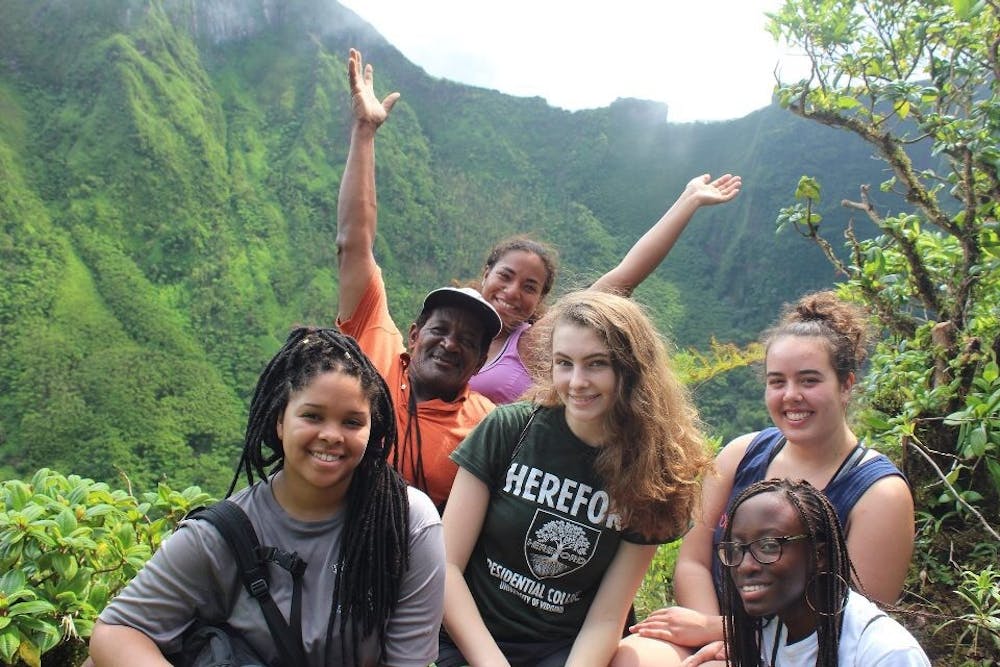While fall and spring semester classes form the core of the academic year at the University, January Term classes allow students to take a wide range of courses for credit during the final two weeks of winter break. Many of the programs of study are taught abroad. J-Term public health class PHS 2810/5810, “Disaster Preparedness in St. Kitts and Nevis,” was held in a dual-island nation situated between the Atlantic Ocean and the Caribbean Sea.
J-Term classes can be both off-Grounds and domestic, such as a New York-based media studies course MDST 4559, “Journalism in NYC.” However, most classes are held on Grounds and paid for by the credit hour.
Assoc. Public Health Sciences Prof. Wendy Cohn served as the program director for PHS 2810/5810. She believes J-Term classes like the one she manages are a valuable offering.
“J-Term is a great way to immerse yourself in a course for two weeks and get three credits,” Cohn said, “It’s particularly well suited to travel courses.”
According to Cohn, PHS 2810/5810 is accessible to students regardless of major or school and is advertised in numerous ways, including through the International Studies Office and the study abroad fair. All students can apply.
Interested students must complete an online Education Abroad Workshop before initiating the application process. Then, students can search for programs by major, location and language of instruction through the International Studies Office website and ultimately register through SIS once their application is approved.
“Disaster Preparedness in St. Kitts and Nevis” is intended to teach the fundamentals of public health and disaster preparedness. Cancer prevention was one of the unique focuses in the 13-day course this year. Every day, half of the class is dedicated to lectures covering topics of public health research, health disparities, social justice, emergency care and CPR training and population health improvement.
Second-year College student Sydney Williams took the course this past J-Term session and found it a convenient time to study abroad.
“I wouldn’t be missing out on any classes that I needed to take at U.Va.,” Williams said. “I am interested in going into to medicine and … public health. This was a great way for me to explore those interests.”
As for the proportion of lecture to hands-on experiences, both Cohn and Williams agree it is a balanced ratio.
Cohn noted that mornings are usually reserved for didactic work and lecture while the rest of the day is designed to give students a degree of cultural exploration.
“We spend a lot of time working with the locals and spend as little time as possible in the hotels,” Cohn said. “This year we went to the Carnival — an annual cultural celebration with food, music and a parade.”
Williams’s most notable experiences of the trip, including visiting an orphanage in St. Kitts and attending a church service in Nevis, were both educational and cultural.
“A lot of us earned CPR certification,” Williams said. “We also got to be a part of a press release to announce the implementation of the HPV vaccine.”
Overall, Williams said that she recommend the class to fellow students.
“I think it was pretty cool that the work we did on the island is actually going to be helpful in the prevention of cervical cancer,” she said. “It’s great for anyone who is interested in public health and would like to make an impact on the communities in which they study.”







